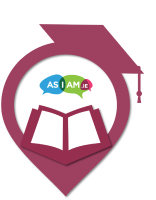In college, there’s usually someone you can turn to for support whether it’s a lecturer, advisor, or support service. But to make the most of these resources, you need to take the first step. That’s where self-advocacy comes in.
Self-advocacy means understanding your needs and confidently communicating them. Whether you’re connecting with student services or following up with a lecturer this skill will help you throughout your college journey and beyond.
If you disclosed a disability when applying to college (for example, through the DARE scheme), you may be contacted by the Disability Support Office during your first few weeks.
At your first meeting, you may:
Your DSO is your main point of contact. They’re there to support you, but it’s up to you to stay in touch. After your initial registration, you may need to reach out to them when challenges come up.
To make the most of the service:
The more openly you communicate with them, the more effectively they can support you.
There may be times when you need to contact a lecturer for help understanding material, requesting an extension, or discussing accommodations. That’s a normal and important part of self-advocacy.
Most lecturers will explain how they prefer to be contacted during the first few classes of the module. This could be:
When reaching out:
Remember: lecturers are there to support your learning. Asking for help or clarification is part of engaging fully with your education.
Self-advocacy is about:
It’s a skill that empowers you not just in college, but throughout life. The sooner you start practicing it, the more confident and capable you’ll become.
